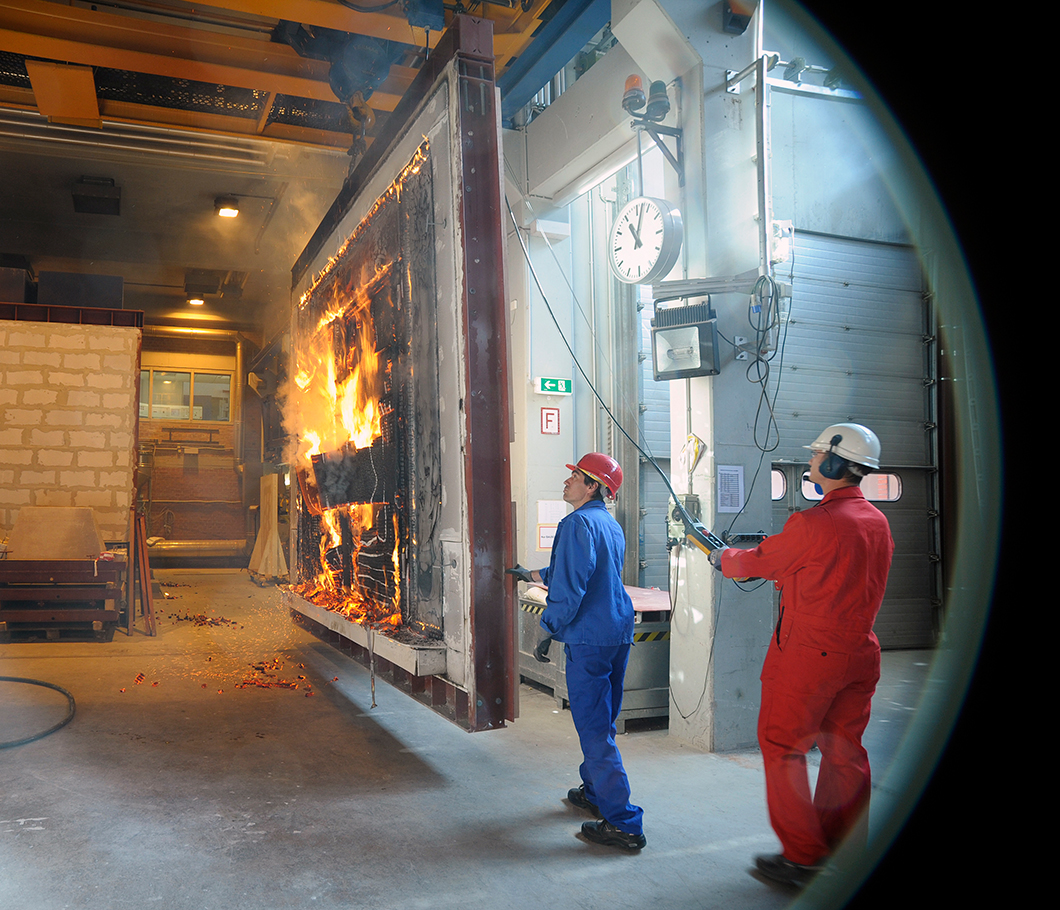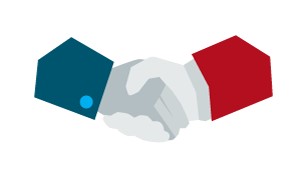
Testing of a fire door
Source: BAM
Project period
01/01/2021 - 31/01/2026
Project type
EU project
Project status
Ongoing
Description
METABUILDING LABS is setting up a Europe-wide digital Open Innovation Platform especially targeting SMEs to facilitate the development of innovative building envelopes (e.g. façade systems) by providing access to specialized testing facilities. BAM participates with its laboratories in the field of materials and fire testing.
Location
Bundesanstalt für Materialforschung und -prüfung (BAM)
Unter den Eichen 87
12205 Berlin
Pressure test on a clay masonry specimen Source: BAM
Source: BAM
Source: BAM
METABUILDING LABS integrates European SMEs into an emerging innovation ecosystem through meta-clustering. The central idea of the meta-clustering concept is to expand cooperation and the sharing of resources. The long-term goal is to reach 30,000 SMEs from all European regions. In a first step, 180 already existing European clusters are integrated into 12 national meta-clusters.
Source: BAM
The European Horizon 2020 project METABUILDING LABS is coordinated by NOBATEK/INEF 4, a French research centre for ecological transformation in the construction industry. The 40 project partners include research and testing institutions institutions from the construction sector, living labs, major research clusters and a number of universities. In addition, manufacturers of façade systems, housing associations and organizations from the IT and communications sector are involved.
METABUILDING LABS — Open innovation test bed for European construction SMEs
The need to significantly increase the energy efficiency of buildings makes the development of innovative building envelopes (e.g. façade systems) a key task for the European construction industry. In order to support small and medium-sized enterprises in particular with the associated challenges, the Bundesanstalt für Materialforschung und -prüfung (BAM) is working together with 40 partners within the framework of the European Horizon 2020 research project METABUILDING LABS on a digital platform that is intended to promote the speed of innovation and market maturity of new solutions through the principle of open innovation and the bundling of competences.
METABUILDING LABS targets SMEs and other actors in the construction sector, giving them access to open innovation test beds as part of a broader innovation support ecosystem. These test beds help accelerate new developments by SMEs, enabling them to be more competitive with large industry players. In order to engage an ever-growing number of SMEs at European level, a meta-clustering strategy is applied within the project.
The digital platform, which integrates testing facilities via a single-entry point of contact is being built by METABUILDING LABS in close cooperation with its sister project METABUILDING. This Horizon 2020 project has already created the first level of the innovation ecosystem by engaging six target countries since 2020 and launching an Open Innovation Digital Platform for the construction sector.
A wide range of testing and digitalisation services for building envelopes is covered by the internet based Open Innovation Digital Platform. The creation of digital models of building envelopes makes it possible, for example, to predict the behavior of buildings under different environmental conditions already at the planning stage. In this way, the development of innovative systems is accompanied and supported from the first tests to the European market launch with CE certification under one roof.
BAM's contribution
BAM contributes its wide range of testing facilities as well as its technical expertise to METABUILDING LABS. This includes collaboration in the definition of the technical requirements for the Open Innovation test facilities as well as the provision of test technology (fire test benches, mechanical test benches, microstructure laboratory and thermal-hygric laboratory). In addition, BAM leads a project task that ensures the continuous quality assurance of the testing infrastructures and services in the network and provides the Testing & Quality Manager in the project management team.
Coordination
Nobatek INEF 4, France, is responsible for the overall coordination of the project.
Consortium
The 40 international project partners include research and testing institutions from the construction sector, living labs, major research clusters and universities. In addition, manufacturers of façade systems, housing associations and organisations from the IT and communications sectors are involved.
Members of the consortium on metabuilding-labs.eu
Federal Institute for Materials Research and Testing (BAM)
BAM's Building Materials division, Dr. Julia von Werder
BAM's Accreditation and Conformity Assessment section, Dr. Tilman Denkler
Funding
The METABUILDING LABS project is funded by the European Union's Horizon 2020 research and innovation programme under Grant Agreement No. 953193.
Source: The European Union's Horizon 2020 research and innovation programme
The sole responsibility for the content of this webpage lies entirely with the authors’s view. The European Commission is not responsible for any use that may be made of the information it contains.


